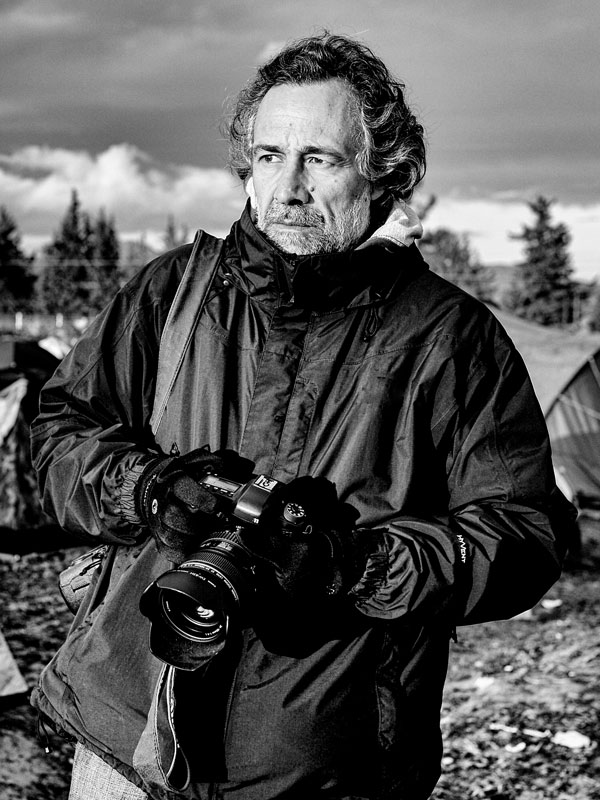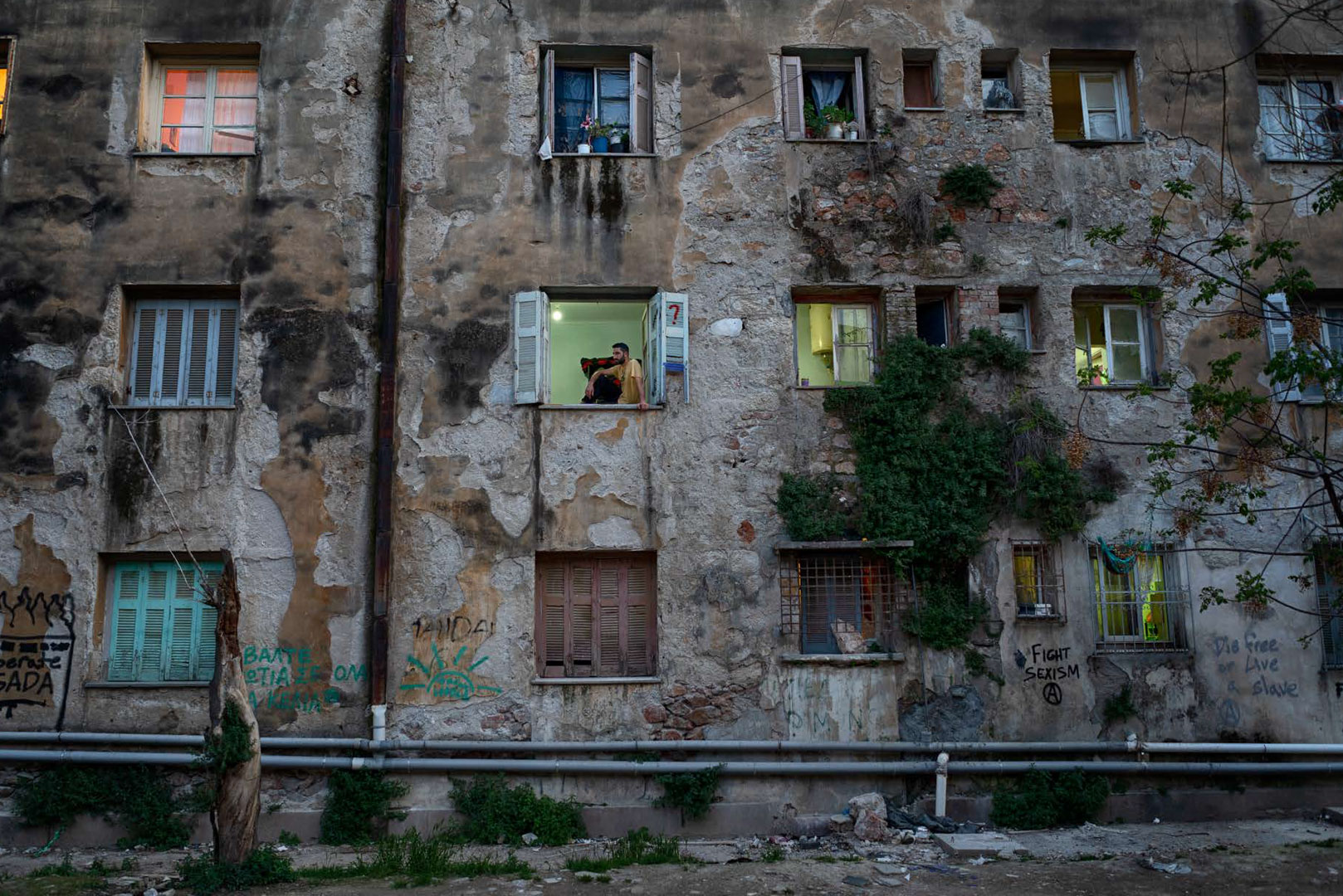
Nikos Pilos is an award-winning photojournalist and filmmaker based in Athens, Greece. He has traveled extensively to document wars, natural disasters, poverty, socio-economic struggles and cultural change. His work is regularly published in leading international newspapers and magazines and exhibited throughout Europe and the USA.
Since 2008, he has worked on the Greek and Cypriot economic crisis and recession, the social and political changes in Turkey, the rise of nationalism in Europe, and the refugee crisis.
He has given lectures as a guest speaker and lecturer at New York University, Columbia University School of Arts, Princeton University, the National and Kapodistrian University of Athens. He recently received a Fulbright Fellowship for the New Media Program at New York University and taught a course entitled Photography and Democracy at the NYU Tisch School of the Arts.
In 2017, he published the photo album “Trapped,” which depicts the life of refugees in Greece during the Greek crisis and the Balkan migration route. In 2022 he published a book entitled “Kiev under Siege,” which describes the lives of people who decided not to leave their homes during the bombing of the city.
His work has received many awards (POY 2021, 2020, 2016, 2014, World press Photo 2017, NPPA 2014, CHIP 2012,PX3 2020, 2016, 2014, 2013, 2012 and VISUALLEADER 2016 among others) and has been exhibited in many cities (Roma Fotografia, Thessaloniki Museum of Photography, Kolga Tbilisi Photo Festival, Angkor Photo Festival, Cambodia, Contemporary Museum of Cologne, House of Photography, Hamburg, Zingst Photo festival, Athens Photo Festival, Moving Walls 21, Open Society Foundation, New York, Visa Pour L’Image Festival, etc.).

The Prosfygika of Alexandras Avenue is a living historical monument, recognized as one of the most important architectural structures of the 20th century in Greece, and a timeless symbol of poverty and displacement. The Bauhaus complex was built in the 1930s, consisting of 8 blocks of 228 identical apartments, to house the Greek refugees who arrived from Turkey after World War I.
Since 2000, abandoned by the state, it has been left to decay and has become the site of a variety of illegal activities. In 2010, an anarchist collective decided to take action by occupying the buildings. Since then and until today, the Prosfygika are maintained and inhabited by over 500 people of 30 different nationalities. The few, original, remaining residents of the Prosfygika became neighbors with migrants and refugees, with poor people who lost their homes, with ex-users, ex-convicts, with activists and members of internationalist political organizations. They now live in harmony, in an unusual community that operates according to the rules of direct democracy, and is governed by the values of solidarity and self-organization.
The community functions through regular assemblies that deal with both the internal affairs of its residents and its socio-political activities. Through the Assembly of Occupied Prosfygika decisions are taken both in relation to the daily needs and the actions of the individual structures of the community (education, accounting, health, children, social kitchen, etc.), and in relation to the involvement of the Prosfygika in social movements and ways of dealing with state repression.